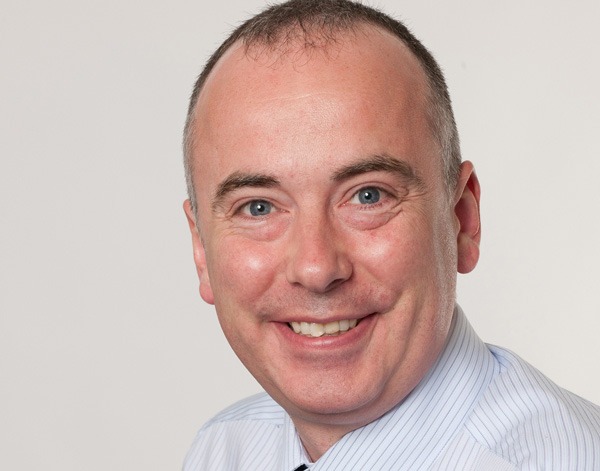
Chancellor George Osborne delivered his Autumn Statement today and Tom Roseff, Senior Tax Manager at Harrogate private client accountancy specialists Saffery Champness, has provided an overview of the main announcements impacting taxpayers.
Mr Roseff said:
Whether the Chancellor will be challenged for not doing enough to raise additional tax revenues from the wealthy whilst continuing to tax the less well off in society remains to be seen.
The changes to pensions rules are particularly disappointing for high earners and entrepreneurs – restricting pension tax relief being reduced to £40,000 per year gives out all the wrong signals to those who are trying to save in order to stay independent in old age.
To see further tinkering with an already complicated regime is also disappointing. That said, the Chancellor will presumably be hoping that in the short term the reduced relief may potentially mean people will spend more and help stimulate the economy.
Mr Roseff welcomed measures against “exotic tax avoidance” together with the additional funding made available to HMRC for the relentless pursuit of evaders.
Mr Roseff added:
Whether this will be sufficient to tackle the perceived “avoidance” of tax by large multinationals and result in the forecast £10bn windfall the Chancellor expects is however highly debatable.
For businesses, the reduction in corporation tax to 21% in 2014 is certainly to be welcomed. This will help position the UK as welcome investment destination and counter the adverse international impact of the proposed General Anti Avoidance Rule (GAAR).
The SME increased annual capital allowance increase to £250,000 is highly welcome for those which can afford to invest. My expectation is that many Yorkshire businesses will welcome this measure, although it would have been good to see the AIA retained at this level as a permanent measure rather than a temporary incentive.
The overall increase in the personal allowance to £9,440 is welcome but it should be available across all tax bands.
This is Tom Roseff’s summary of the Chancellor’s key points:
Personal Tax/Benefits and Credits
- For the tax year 2013-14 the Personal Allowance will increase to £9,440 and the basic rate limit will be set at £32,010.
- Child Benefit rates are frozen in 2013-14 and will increase by 1% in 2014-15 and 2015-16.
- For 2013-14, there are no changes to the percentage rate of contribution for Class 1 and Class 4 National Insurance contributions (NICs) but there are changes to all of the thresholds and limits.
- The annual and lifetime allowances for pension contributions will be reduced with effect from the tax year 2014-15 onwards:
- the annual allowance for pensions tax relieved savings will be reduced from £50,000 to £40,000
- the standard lifetime allowance for pensions tax relieved savings will be reduced from £1.5 million to £1.25 million
- a transitional ‘fixed protection’ regime will be introduced for those who believe they may be affected by the reduction in the lifetime allowance
Business Tax
- In addition to the Budget 2012 announcement, the main Corporation Tax (CT) rate will be reduced by a further 1% to 21% from 1 April 2014 (as already announced, the main CT rate from 1 April 2013 is 23% and the Small Profit rate remains at 20%).
- The Annual Investment Allowance (which offers businesses 100% tax relief on qualifying investment in plant and machinery but not cars) will be increased from £25,000 to £250,000 per annum for a 2 year period commencing from 1 January 2013.
- It is proposed that a simpler income tax scheme for small unincorporated businesses will be introduced for the tax year 2013-14 to allow:
- Eligible self employed individuals and partnerships to calculate their profits on the basis of the cash that passes through their business. They will generally not have to distinguish between revenue and capital expenditure
- All unincorporated businesses will be able choose to deduct certain expenses on a flat rate basis.
Other Taxes – Fuel Duty, Business rates
- The 3.02 pence per litre fuel duty increase that was due to take effect on 1 January 2013 will be cancelled and the increase that was planned for 1 April 2013 will be deferred until 1 September 2013.
- Several welcome changes to the business rates regime, including from October 2013 the announcement that all newly built commercial property completed between 1 October 2013 and 30 September 2016 will be free from empty property rates for the first 18 months, up to the state aids limit
Inheritance Tax (IHT)
- The IHT nil-rate band was frozen at Budget 2010 at its current level of £325,000 until April 2015. For 2015-16 the band will be increased by 1% rounded up to £329,000.
Anti Avoidance and Evasion
As expected, the Chancellor focussed on tackling tax avoidance and evasion. In addition to a new general anti-abuse rule and additional funding for HMRC’s anti-avoidance teams, five further specific measures have been announced which will have effect from today, 5 December 2012. These cover:
- Foreign bank levies – which are not allowable deductions for Income Tax or Corporation Tax purposes.
- Tax mismatch scheme – which reduce Corporation Tax liability through asymmetric tax treatment of loans or derivatives.
- Property return swaps – which convert capital losses into income losses.
- Manufactured payments – where schemes involve stock lending arrangements.
- Payments of patent royalties – relief for non trade payments to be abolished.
The battle against what the Chancellor perceives as tax avoidance is still very much on the agenda.






